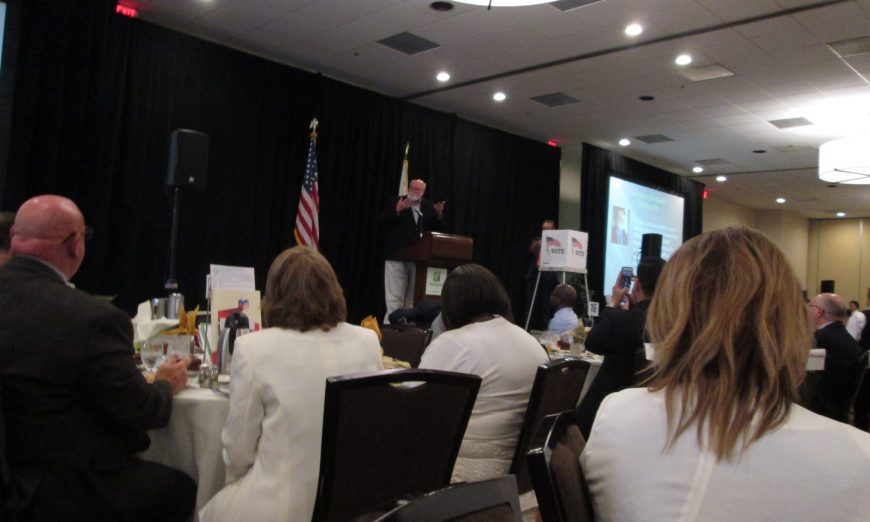Mountain View resident Par Maresca, 26, lives independently in his own apartment, holds down a job at a local hotel, enjoys going out to dinner and the movies with friends and volunteering with The Giving Tree.
It doesn’t sound exceptional unless you know that Maresca has a developmental disability.
“These are things people without disabilities take for granted,” the young man said.
Maresca spoke at last week’s San Andreas Regional Center (SARC)—the state-funded regional non-profit that serves people with developmental disabilities—held its annual lunch with local legislators to recognize local, state, and federal policy efforts that increase inclusion for people with disabilities.
It’s also an opportunity to share upcoming legislation and, in this an election year, remind people of the importance of making their voices heard in Sacramento and voting for legislators that will take their priorities to local and state legislative bodies.
This is funding that supports the network of public and non-profit supportive services that determine whether people with developmental disabilities have a life or simply an existence. These life-changing programs depend on the priorities of federal, state and county funding.
One of those priorities, State Senator Jim Beall (District 15) told the guests, is restoring the funding cuts in human services that were made 10 years ago. The California Dept. of Corrections gets automatic cost of living increases every year, but the Regional Centers do not, said Beall, “Every year we have to fight for it.” State reimbursement is falling behind the costs of providing services, and in many cases is less even than the local minimum wage.
Although a bill to increase the state’s funding to reflect changes in local minimum wages didn’t make it to the governor’s desk this year, a second bill to bridge the gap between local costs and state service mandates—this time a budget appropriation—stands a good chance of passing this year, Beall said.
The State Senator also sponsored a bill currently working its way through the legislature (SB-912) providing $2 billion for affordable and emergency housing. Beall also asked people to get out and vote in November for a $4 billion affordable housing bond.
Santa Clara’s State Senator Bob Wieckowski, sponsor of the 2016 law that reduced fees and red tape for building “mother-in-law” units—accessory dwelling units or ADUs— (District 10) spoke about the new legislation he’s sponsoring.
SB-831 builds on the 2016 law to eliminate local fees for ADUs, creating a temporary amnesty program to evaluate existing unpermitted units, deem an ADU permit approved if an agency hasn’t acted on it within four months, and measures for holding local agencies accountable.
Wieckowski says that because of his association with this issue in Sacramento he is called “the ADU Dude.”
California has $13 billion in reserves, said Wieckowski. “There are three things you can do with that money,” he said. “You can keep it in the bank. You can spend it on one-time needs. Or you can increase program funding.” For Wieckowski—and the people at the SARC luncheon—there was a clear moral imperative for the third course.
San Andreas Regional Center (www.sanandreasregional.org) is a community-based, private nonprofit corporation funded by the State of California to serve people with developmental disabilities as mandated by the California’s Lanterman Developmental Disabilities Act.
SARC is one of 21 regional centers throughout California serving individuals and their families who reside within Monterey, San Benito, Santa Clara and Santa Cruz Counties.






